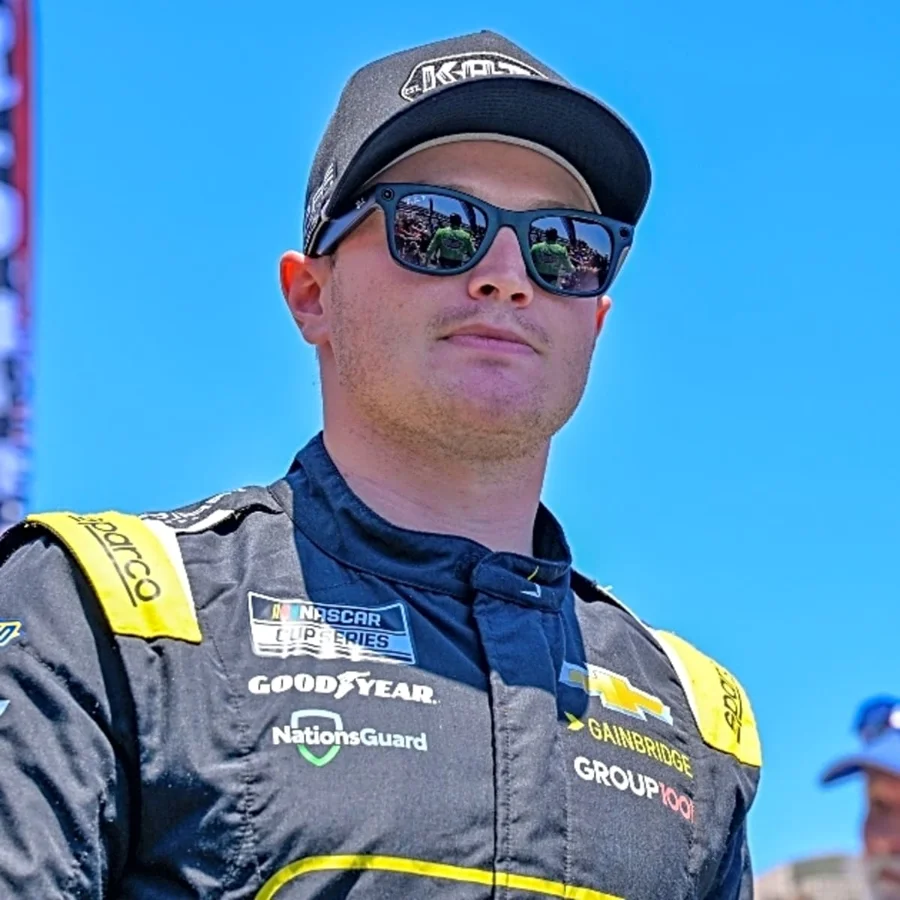Corey LaJoie’s remarks about persistent NASCAR racing criticism have reignited discussion, as fans recalled a fiery 2003 interview with Jimmy Spencer targeting changes in racing strategy and competition. The debate over fuel-based racing resurfaced after LaJoie cited this older critique, suggesting that top-level NASCAR competition remains unchanged, keeping concerns alive among drivers and enthusiasts.
Longstanding Frustrations With NASCAR Racing Formats
In 2003, Jimmy Spencer, a respected figure with a strong background in NASCAR’s top league and a champion in the 1980s open-wheel division, voiced his frustration with changes in the sport. Unlike the earlier days that valued outright racing and competitive spirit, Spencer highlighted a shift toward fuel economy and strategic tire management, which he felt diminished the excitement and authenticity of NASCAR events.
Spencer experienced notable success with Generation 4 NASCAR cars, but by the early 2000s, changes in car design and racing dynamics made fuel conservation a dominant factor in determining race outcomes. Expressing dismay at the trend, Spencer criticized both NASCAR leadership and tire supplier Goodyear, firmly stating his belief that the evolving format was a disservice to traditional racing fans and competitors.
“The Cup race lately has become a [race of] who get’s the best mileage, who can do the best with two tires. It bothers me, it sucks. This ain’t racing, I wanna see us go back to race again, where track positions don’t mean a whole lot, and it’s like ‘I’m putting four tires, I may get some adjustements to my car, I wanna go to the front [of the field].’”
—Jimmy Spencer
“NASCAR and Goodyear, everybody else involved, to let us start racing again, because, right now this gas-mileage deal… is a bunch of bullsh*t. You need to go racing.”
—Jimmy Spencer
Corey LaJoie’s Response and the Enduring Critique
The topic resurfaced when Corey LaJoie encountered the archived interview and commented on the persistent criticism. His observation reflected a shared feeling among drivers that little had changed in NASCAR’s approach to race strategies since Spencer’s days. LaJoie’s succinct remark underscored how historic complaints about race dynamics continue to resonate with current competitors.
“There is nothing new under the sun.”
—Corey LaJoie
These comments came as many observers noted the ongoing dominance of cautious, mileage-conscious tactics in modern NASCAR. While NASCAR has implemented new rules and technology, some drivers and fans argue that the core issues around race excitement and competition remain unresolved.
Jimmy Spencer’s Career and Reflections After Racing
Spencer wrapped up his Cup Series career in 2006 at Pocono Raceway, closing a chapter that included triumphs and disappointments. With two Cup victories and a reputation as one of the stronger midfield drivers of his era, Spencer’s perspectives carried weight among those closely following stock car racing in the United States. Both of his top-level wins came in 1994, and he amassed three pole positions and eighty top-ten finishes before retiring from full-time competition.
After stepping away from the track, Spencer has largely stayed outside the NASCAR spotlight. In a 2017 conversation with NBC Sports, he reflected candidly on the sacrifices made by professional drivers, particularly the family moments lost to the relentless racing schedule.
“You can’t go back and watch the kids play soccer on the weekend you’re racing. You decided to do that. I’m not mad, I don’t regret anything I’ve done. But would I change stuff? Oh, hell, yeah.”
—Jimmy Spencer
The Ongoing Debate and Its Relevance to NASCAR Today
Nearly two decades after Spencer’s passionate criticism, the debate around NASCAR’s race formats persists. Drivers like Corey LaJoie point out that efforts to enhance excitement or evolve strategies have not addressed the core concerns of those seeking pure racing competition. Key figures such as LaJoie and Spencer, alongside organizations like Goodyear and NASCAR itself, remain central in ongoing discussions about future changes.
As both fans and former competitors revisit these issues, the tension between tradition and evolving race tactics continues to shape conversation. The persistence of mileage-based strategies underscores the challenge NASCAR faces in balancing driver input, technological advancement, and the demands of spectators. With increasing scrutiny from seasoned racers and new voices alike, the championship will likely need to reconcile its past and future to retain its place at the forefront of American motorsports.
